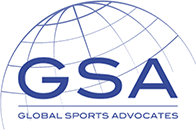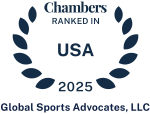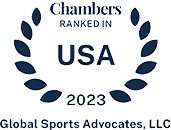 Anti-doping rule violations involving prohibited substances get the most attention, but it’s important to remember that certain methods (regardless of the substance being used) are also prohibited. For example, using IV drips and IV hydration can result in an anti-doping rule violation—even if they don’t involve a banned substance—when an athlete receives more than 100 ml within a 12-hour period.
Anti-doping rule violations involving prohibited substances get the most attention, but it’s important to remember that certain methods (regardless of the substance being used) are also prohibited. For example, using IV drips and IV hydration can result in an anti-doping rule violation—even if they don’t involve a banned substance—when an athlete receives more than 100 ml within a 12-hour period.
Here, the anti-doping lawyers at Global Sports Advocates discuss what athletes need to know to protect their ability to compete.
Table of Contents: |
When Are IV Infusions and Injections Prohibited?
World Anti-Doping Agency’s (WADA) anti-doping rules prohibit intravenous infusions and injections, both in-competition and out-of-competition if the volume exceeds 100 ml during a 12-hour period. The 100 ml threshold applies even if the substance being injected is permitted or if the athlete receives multiple small-volume injections.
IV infusions or injections of over 100 ml are prohibited for three reasons:
- They can be used to mask the use of a prohibited substance.
- They can distort the values of the Athlete Biological Passport (ABP).
- They can enhance athletic performance by increasing plasma volume levels.
When Do I Need a TUE for an IV Infusion or Injection?
A Therapeutic Use Exemption (TUE) allows an athlete to use a medication or method that is otherwise banned. Here are some examples of situations when you’d need a TUE to receive an IV infusion or injection:
- You’re at a health clinic, health center, wellness clinic, or other facility outside of a hospital and receiving an IV infusion or injection that is not part of a surgery or diagnostic test.
- You receive an IV infusion or injection in an event organizer’s medical facility, tent, or first aid station. (Hydration clinics sometimes sponsor sporting events and provide tents offering IV services for athletes, but this is still a prohibited method under the World Anti-Doping Code.)
- You receive IV infusions or injections as part of a cleanse, detox, refresh, hangover cure, or flu relief service from a boutique or concierge IV clinic. (Wellness clinics offering IV vitamin drip therapy are often unaware that their treatments can be prohibited under anti-doping guidelines. As an athlete, it is your responsibility to be aware of the World Anti-Doping Code.)
- You’re receiving IVs during home visits by IV services of any type.
- You’re using your own IV equipment at home.
Do I Need More Than One TUE?
Depending on the circumstances, you could be required to obtain more than one TUE for your IV drip or injection.
- If you are receiving a permissible substance, but the total volume will exceed 100 ml in 12 hours, one TUE is needed.
- If the substance being received is prohibited, you need two TUEs: one for the prohibited substance and one for the IV volume of more than 100 ml in 12 hours.
When you apply for a TUE, you’ll be asked to provide a summary of your medical history, the findings of a physical examination that establishes the need for an IV drip, and a description of the substance to be infused, along with the infusion rate. The diagnosis should be established in accordance with the International Classification of Diseases standards of the World Health Organization (ICD-10). Your TUE application should demonstrate why an alternative therapy, such as oral rehydration for dehydration, is not an acceptable course of treatment.
Consult our anti-doping lawyers to outline your medical history, physical exam results justifying an IV infusion, and substance details, including infusion rate.
What About Emergency Medical Care?
Your health is the top priority in emergency medical situations. Seek appropriate medical care first and then apply for a retroactive TUE through our anti-doping lawyers or the relevant anti-doping agency.
However, no TUE is needed if your IV drip or injection of more than 100 ml in 12 hours is received in one of the following circumstances:
- In a hospital or emergency room
- In an urgent care or after-hours clinic that is part of a hospital or a hospital system
- As part of a surgical procedure that is performed in or out of a hospital
- As part of a diagnostic procedure or test like an MRI or CT scan that is performed in or out of a hospital
Contact an Anti-Doping Lawyer for a Consultation
If you're facing potential anti-doping violations linked to IV drips, contact our specialized anti-doping lawyers today. Click the button below to schedule a consultation, or call us directly at +1-207-747-5899 to discuss your case with experts in sports law and anti-doping regulations.
Safeguard your athletic career and integrity with the guidance of our dedicated legal team, which is experienced in defending athletes globally across various sports disciplines.




















